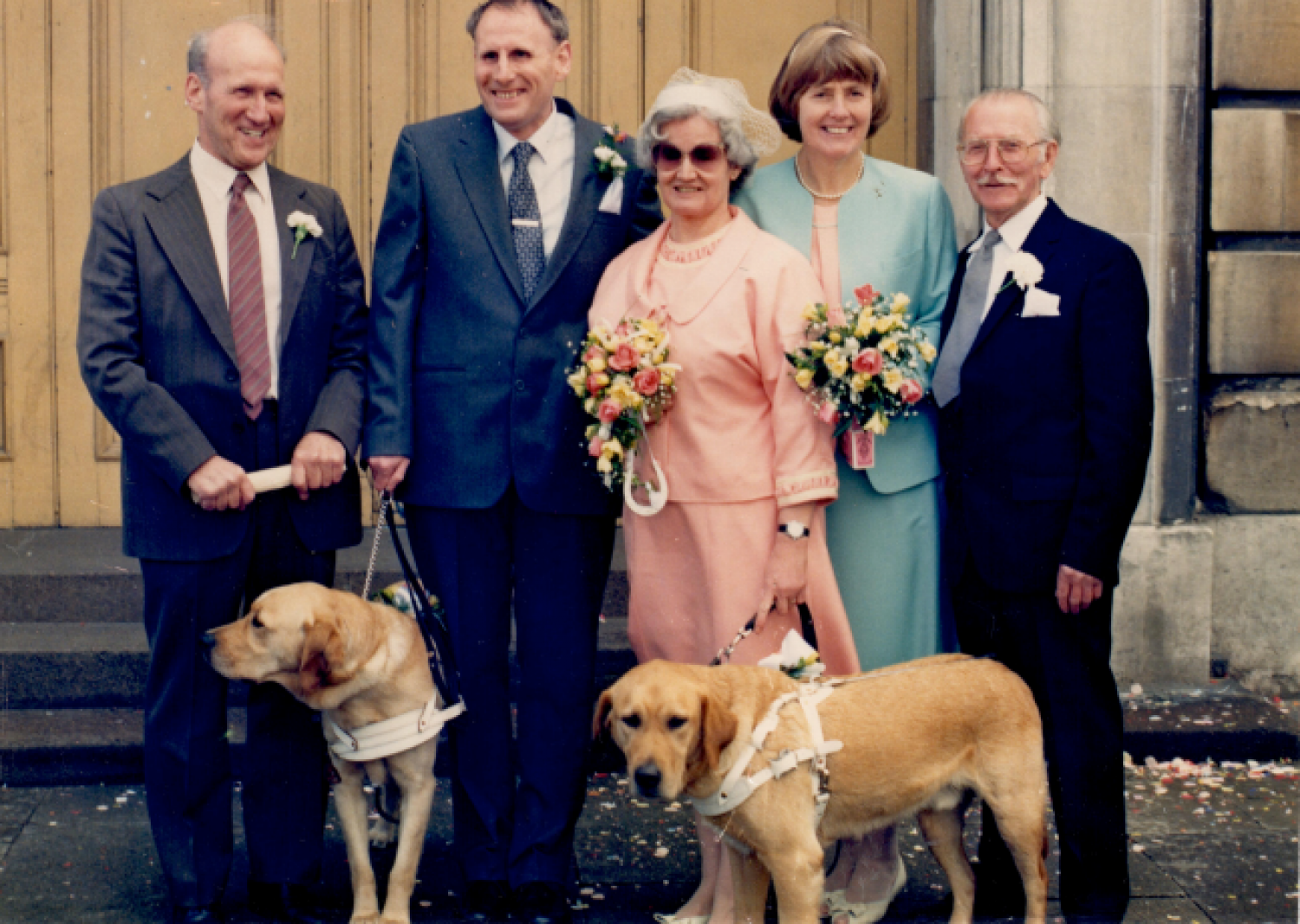Three minute read
This is part of a short series of Talking Death blogs exploring how funerals can be more accessible for everyone. Each experience is unique, but the same principles apply: putting the person and their wants and needs first.
Here, Allen Richardson, who is visually impaired, explains how he planned and took part in his wife Margaret’s funeral. We also share some advice to help make funerals more accessible for blind and visually-impaired people.
Tell us a little bit about your wife, Margaret.
Margaret was born in Cambridge Circus, right in the centre of London. She had an eventful childhood, living there during World War Two. She told me she remembered her parents taking her up on the roof of their building to watch the bombs falling.
Margaret had retinitis pigmentosa, a genetic disorder of the eyes which causes a deterioration of vision. For Margaret, this meant that she was able to attend sighted school but that her vision became progressively worse over her life. Later on, she needed a guide dog.
How did you two meet?
We met in the New Forest. We were on a course learning how to make recordings of bird songs — we first bonded over our love of birdsong.
This was reflected in Margaret's funeral — her coffin was carried into the chapel to the beautiful sound of a skylark singing.
Did being visually impaired make a difference to how you planned her funeral?
Yes, there were certain things that I felt were very important to include, like being able to bring my guide dog Percy to the service.
Margaret loved dogs and had many beautiful guide dogs during her life, so it felt very fitting that Percy should be there. He sat at the back and his original trainer looked after him during the service — he was immensely well-behaved throughout!
I wanted to help carry Margaret's coffin into the chapel. Poppy's made this possible. They gave me a full briefing and made sure the other bearers kept talking to me the whole time.
It went very smoothly, there was no messing about and everything happened exactly the way they told me that it would.
I was totally confident that everything would go to plan because Poppy’s discussed every detail with me beforehand. They described exactly what would be happening, including where they would place the photos of Margaret in the chapel.
We also considered getting an order of service printed in braille, but decided against this in the end.
What do you think Margaret would have made of the funeral?
Although Covid-19 restrictions were in place, Margaret would have been surprised and delighted by the number of people who came to celebrate her life.
Having those people around us meant such a lot to me too. She would have thought that the service was perfect. I know she would have lapped it up.
Do you have any advice for other visually-impaired people who are planning a funeral?
Try to go through everything step by step, rather than trying to rush things or do them all in one go. Stay in close contact with your funeral director, so that you can have confidence about how things will go on the day.
Read more about Allen and Margaret in Forward: the Guide Dogs Magazine (Spring/Summer 2021 issue)
Ideas and guidance for planning a funeral which includes visually-impaired people
- Prepare well in advance, explain every process clearly, step-by-step, so that the person knows what is going on.
- Be flexible about how you communicate: check whether phone or face to face is better than email.
- Use other senses, like sound, smell or touch. Favourite music, sweet-smelling flowers or enabling the person to touch the coffin are all ways to make the funeral more meaningful for someone with a visual impairment, as well as for everyone who is there. Read our blog about using all five senses at a funeral.
- Focus on what’s possible. Don’t assume that something cannot be done. There’s no reason that someone with a visual impairment can’t be fully involved in the funeral, including carrying the coffin.
Don't miss our blog on funeral care and neurodiversity and read more stories from people who planned unique and meaningful funerals with Poppy's.
To stay in touch with all the latest news and updates from Poppy's by email, sign up here or contact us if you need help planning a funeral.
